
Marcus Valerius Martialis (40–104 AD) aka Martial was a Roman writer of epigrams. He was originally from Hispania (modern-day Spain), moved to Rome and became famous for his short, witty, often satiric writings about Rome, its people and the general culture of his age. His twelve books of Epigrams were published when he was alive and he survived the reigns of the Emperors Domitian, Nerva and Trajan—in spite of and perhaps because of his acerbic wit. Even in our day, one appreciates the “street-smart” truths/information in Martial’s epigrams (from Latin epi meaning “on, upon” and gramma meaning “something written”). The following are some of Martial’s epigrams.
TO SPARSUS
Sparsus was perhaps a senator. All senators had to be worth at least 1 million sesterces, so this Sparsus could afford to live in the lap of luxury and peace on the outskirts of Rome. Not so Martial.
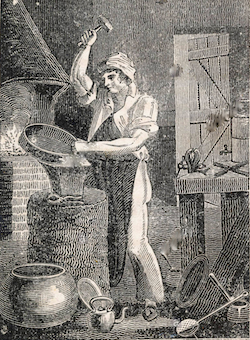
“You ask why I so often go to my small domain at arid Momentum and the humble household at my farm? There is no place in (Rome), Sparsus, where a poor man can either think or rest. One cannot live for schoolmasters in the morning, corn grinders at night, and braziers’ hammers all day and night.
Here the money-changer indolently rattles piles of Nero’s rough coins on his dirty counter; there a beater of Spanish gold belabors his worn stone with shining mallet. Nor does the fanatic rabble of Bellona (goddess of War) cease from its clamor, nor the gabbling (babbling) sailor with his piece of wreck hung over his shoulder; nor the Jew boy, brought up to begging by his mother, nor the blear-eyed huckster of matches. Who can enumerate the various interruptions to sleep at Rome?
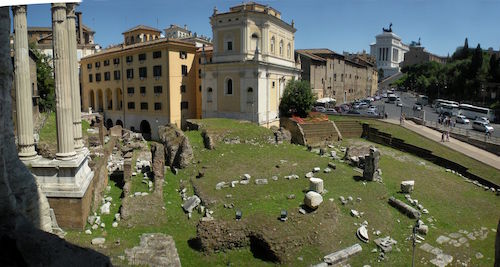
You, Sparsus, are ignorant of such things, living, as you do, in luxurious ease on your Petilian domain; whose mansion, though on a level plane, overlooks the lofty hills which surround it; who enjoy the country in the city (rus in urbe), with a Roman vine-dresser, and a vintage not to be surpassed on the Falernian mount….But I am awakened by the laughter of the passing crowd; and all Rome is at my bed-side. Whenever, overcome with weariness, I long for repose, I repair to my country-house.” Epigrams 12.57
TO A HOST
In this epigram Martial chides whatever man who invited him to dinner because his fare is “too rich for his blood” and Martial would not be able to return his invitation with such a sumptuous dinner as this man would offer him. We learn that mushrooms, wild boar and Lucrine oysters from the saline Lake Lucrine near Naples were “fancy fare.” It is sure the gentleman who invited Martial to his home for dinner will not do so again.
“If you put on table before me mushrooms and wild boar as common fare, and do not presume that such dishes are the object of my prayers, it is well; but if you imagine that by them I am made happy, and expect to get yourself inscribed in my will, as my heir, in return for some half-dozen Lucrine oysters, good-bye to you.
Yet your dinner is a handsome one, I admit, most handsome, but to-morrow nothing of it will remain…. Were Jupiter himself to give me nectar…it would turn to vinegar, and the cheating trash of a Vatican cask. Seek other guests, Sir Host, who may be caught by the regal sumptuousness of your table; as for me, I prefer a friendly invitation to a hastily arranged little dinner: it is such a repast as I can return that pleases me.” Epigrams 12.48
MARTIAL’S PREPARATION FOR A DINNER PARTY
Martial sent out this invitation to five of his best friends:
Stella, Nepos, Canius, Cerealis, Flaccus, are you coming?
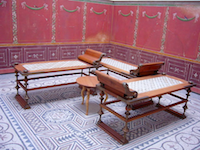
The sigma (dinner-couch) holds seven: we are only six, add Lupus. My bailiff’s wife has brought me mallows, to aid digestion, and other treasures of the garden; among them are lettuces and leeks for slicing; nor is mint, the antidote to flatulence, or stimulant elecampane, wanting. Slices of egg shall crown anchovies dressed with rue; and there shall be sow’s teats swimming in tunny-sauce (tuna fish sauce). These will serve as whets for the appetite.
My little dinner will all be placed on table at once; there will be a kid snatched from the jaws of the rapacious wolf; there will be chopped meat such as have no need of a carver; there will be haricot beans, and young cabbage sprouts. To these will be added a chicken; and a ham which has already appeared at table three times.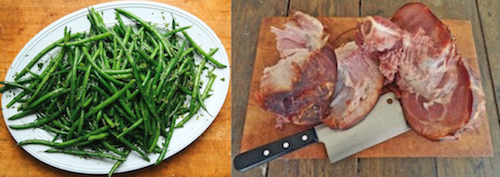
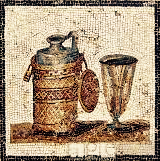
For dessert I will give ripe fruits; wine from a Nomentan flagon which was filled in the second consulship of Frontinus (30—130 AD).All shall be seasoned with pleasantry free from bitterness; there shall be no license of speech that brings repentance on the morrow, and nothing said that we should wish unsaid. But my guests may speak of the rival factions in the circus, and my cups shall make no man guilty.” Epigrams 10.48
AN INVITATION TO ONE JULIUS CEREALIS.

“You may have a good dinner, Julius Cerealis, with me; if you have no better engagement, come. You may keep your own hour, the eighth (2 o’clock in afternoon). We will go to the bath together; you know how near the baths of Stephanus are to my house. Lettuce will first be set before you, a plant useful as a laxative, and leeks cut into shreds; next tunny-fish full grown, and larger than the slender eel (anchovy), which will be garnished with egg and leaves of rue.
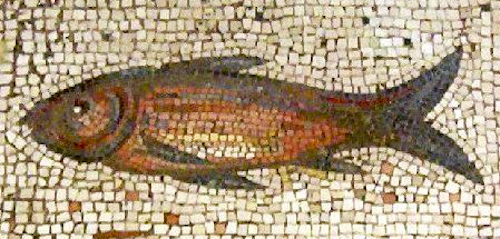
Nor will there be wanting eggs lightly poached, and cheese….nor olives which have experienced the cold of a Picenian winter. These ought to be sufficient to whet the appetite. Do you want to know what is to follow? I will play the braggart, to tempt you to come: There will be Fish, oysters, sow’s teats, well-fattened tame and wild-fowl….I promise you still more: I will recite no verses to you; while you shall be at liberty to read to me again your “War of the Giants,” or your Georgics, second only to those of the immortal Virgil.” Epigrams 11.52
Every New Year’s Eve this writer hears people say, “My New Year’s Resolution is to go to the gym every day,” or “My New Year’s Resolution is to lose weight.” I have never heard a person say, “My soul is flabby. I’m going to read the Bible from the beginning to the end and get some meat on my soul.”
“Do not work for food that spoils, but for food that endures to eternal life, which the Son of Man will give you. For on him God the Father has placed his seal of approval.” John 6:27
“My food,” said Jesus, “is to do the will of him who sent me and to finish his work.” John 4:34—Article by Sandra Sweeny Silver
